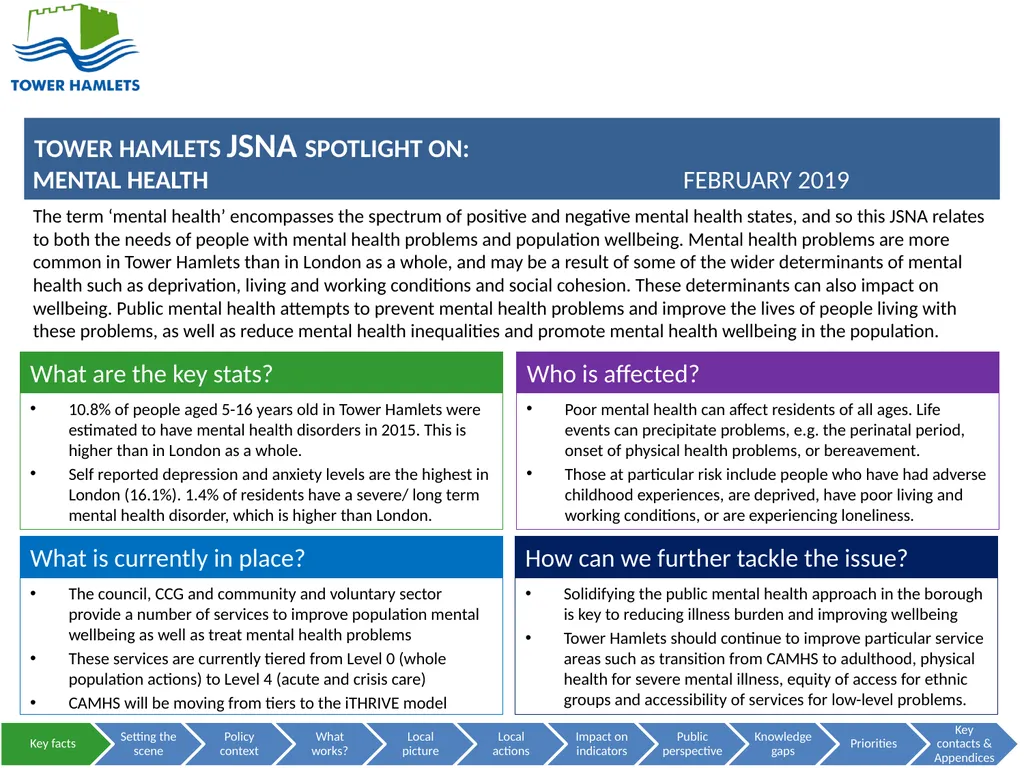
Author : natalia-silvester | Published Date : 2025-07-18
Description: MENTAL HEALTH FEBRUARY 2019 The term mental health encompasses the spectrum of positive and negative mental health states, and so this JSNA relates to both the needs of people with mental health problems and population wellbeing. MentalDownload Presentation The PPT/PDF document "" is the property of its rightful owner. Permission is granted to download and print the materials on this website for personal, non-commercial use only, and to display it on your personal computer provided you do not modify the materials and that you retain all copyright notices contained in the materials. By downloading content from our website, you accept the terms of this agreement.
Here is the link to download the presentation.
"MENTAL HEALTH FEBRUARY 2019 The term ‘mental"The content belongs to its owner. You may download and print it for personal use, without modification, and keep all copyright notices. By downloading, you agree to these terms.












